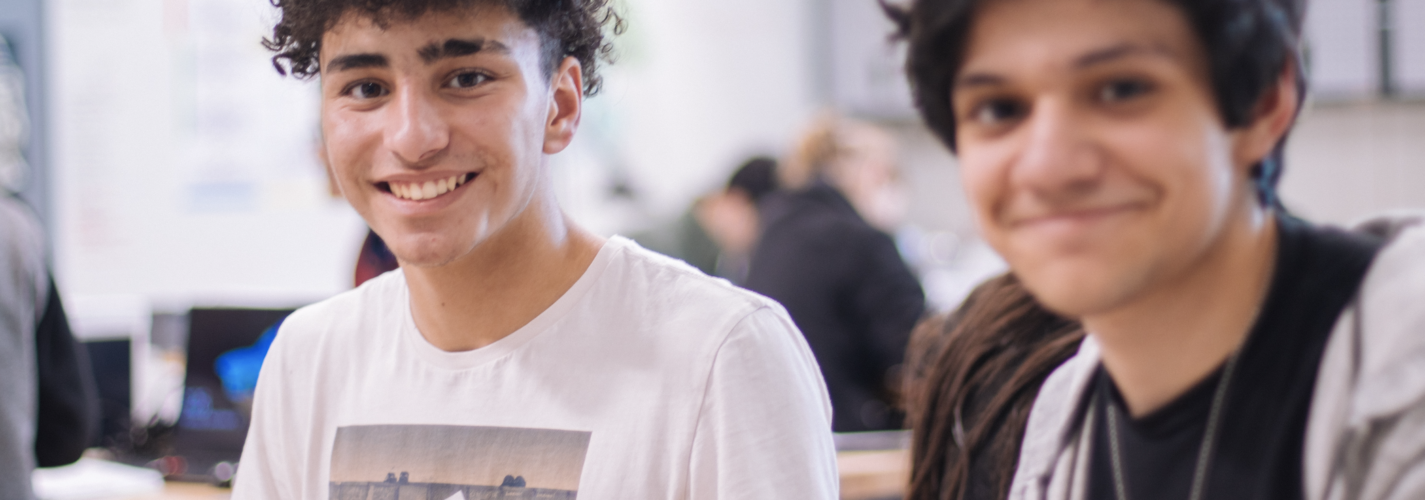Students Don’t Need Mindful Moments. They Need Change.
By Kara Cisco
White Supremacy with a hug. That’s what educator, activist, and founder of LiberatED Dena Simmons wrote in an article for ASDC earlier this year. Simmons warned that if not done well, social-emotional learning (SEL) risks becoming “white supremacy with a hug.” She argues that any SEL program which purports to teach Black, Brown, Indigenous, and Asian American Pacific Islander (AAPI) students of the global majority—as well as students who are experiencing poverty—to deep breathe and manage their stress through mindful meditation without at any point taking into account the systemic oppression that is the foundation of the stress they are experiencing is itself rooted in those same systems of oppression.
Simmons argues that for the students who are worried about their next meal or the stability of their family’s housing, for example, meditation and deep breathing are insulting. The same can be said for students who are unable to attend a single day of school without encountering a barrage of micro and macro aggressions—why are we teaching students yoga moves and square breathing when we, as an institution, have the power to influence the psychological safety of their learning environment in the first place?
Deep breathing and mindful meditation aren’t bad skills to have, so long as they are also taught alongside the other significant and genuinely impactful social-emotional skills needed to empower our students to take agency in their own lives.
I’ve been thinking about Simmons a lot as we press forward into the second quarter of the longest school year of most of our lives. I have heard the term SEL more times this year than throughout my entire career. On one hand, I am happy that education as an institution is becoming more receptive to the long-term implications of trauma. We know that biologically, students with raised cortisol levels can’t learn, at least not in the rote ways we sometimes teach them. On the other hand, I’m worried that we’re noticing many typical trauma responses that result from a feeling of helplessness amidst a global pandemic, an economic crisis, a racial uprising, a failed coup, a sexual assault reckoning, a social media landscape that is heightening the anxiety and depression that students are already experiencing, and we are applying the typical tools and strategies of SEL when what students actually need is a sledgehammer to break the whole system apart.
Effective (Not Oppressive) Social-Emotional Learning
SEL is most effective and least oppressive when integrated with the study of civics. Civics courses offer a platform from which students can not only learn social-emotional skills—like social awareness, empathy, and deliberation across differences—but also develop the tools, skills, knowledge, and efficacy to influence policy and confront the laws and policies which serve as the architecture of their disenfranchisement. Deep breathing and mindful meditation aren’t bad skills to have, so long as they are also taught alongside the other significant and genuinely impactful social-emotional skills needed to empower our students to take agency in their own lives.
In a year in which we have seen civics curriculum come under a great deal of scrutiny in several states across the nation, students have much to gain and very little to lose if we give them the tools to advocate for their future, regardless of their political ideology or party affiliation. For this reason, it was affirming to see the Collaborative for Academic, Social, and Emotional Learning (CASEL), often considered the research and advocacy standards-bearer when it comes to SEL, add engaged citizenship to its list of long-term SEL outcomes this year.
Students Taking the Lead in Civic Engagement
Civic engagement related to SEL is built out in my classroom in many ways. My civics classes:
- Engage in deliberations, examining the real-life impact of public policy
- Build empathy, adopting multiple viewpoints on a single current-events issue weekly.
- Participate in the Center for Civics Education’s Project Citizen showcase, in which students, as a class, research and develop policy.
- Interact with policymakers, civil servants, and elected officials through Project Citizen. In doing so, students develop the skills they will need to maintain this level of civic engagement for the rest of their lives.
In my ethnic studies class, students:
- Meet with school board members and school leaders to address the myriad ways that school policy manifests in their day-to-day lives in a manner that replicates the same oppressive systems we study in class.
- Study the grassroots, boots-on-the-ground movements that have led to long-term systemic changes in our country’s laws and public policies in a way that fosters critical hope.
Each of these examples requires learning a base level of social-emotional skills—empathy, perspective-taking, assertive communication, and, for that matter, basic stress management. But in this application, these skills are merely the beginning of something much more significant. In this incredibly challenging year, that is social-emotional learning.
Everyone Deserves Better
Teachers—of all people—have to understand how ineffective superficial approaches to SEL can be during a year when we are so often told to practice “self-care” and take a “mindful moment.” We all know that no amount of mindful moments will even begin to address the stress of untenable class sizes, inefficient systems, and a labor shortage that has approached crisis levels in school districts across the nation. We don’t need mindful moments. We need change. We would do well to heed the wisdom of Simmons and appeal to organizations, elected leaders, policymakers, lobbyists, unions, and each other to demand the changes that would make all of that deep breathing and self-care far less superficial in the long term. We, like our students, deserve better.
EdAllies seeks to elevate diverse voices and foster a candid dialogue about education. While we provide our blog as a platform for EdVoices and other guest contributors, the views and opinions they express are solely their own.

